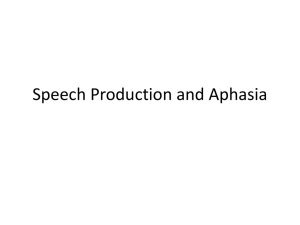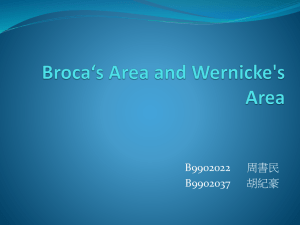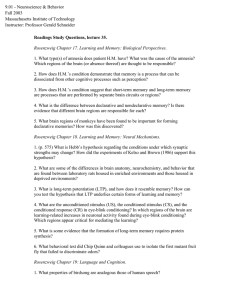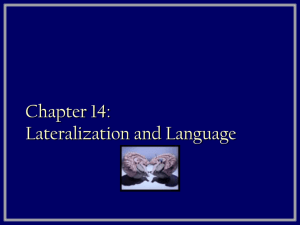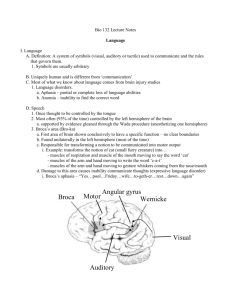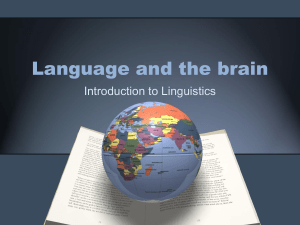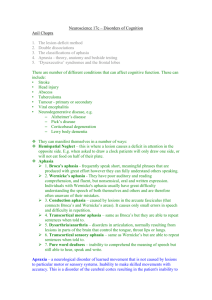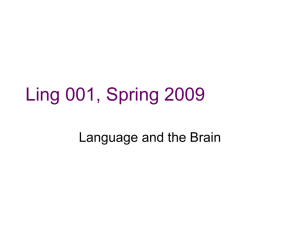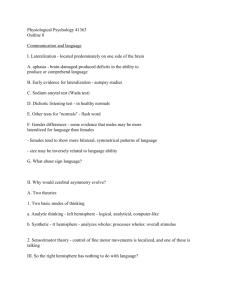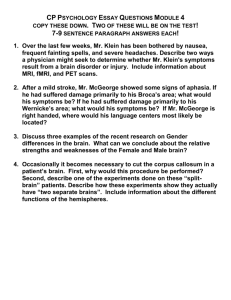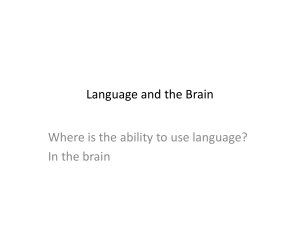A.P. Psychology 3-B (D) - The Brain and Language
advertisement
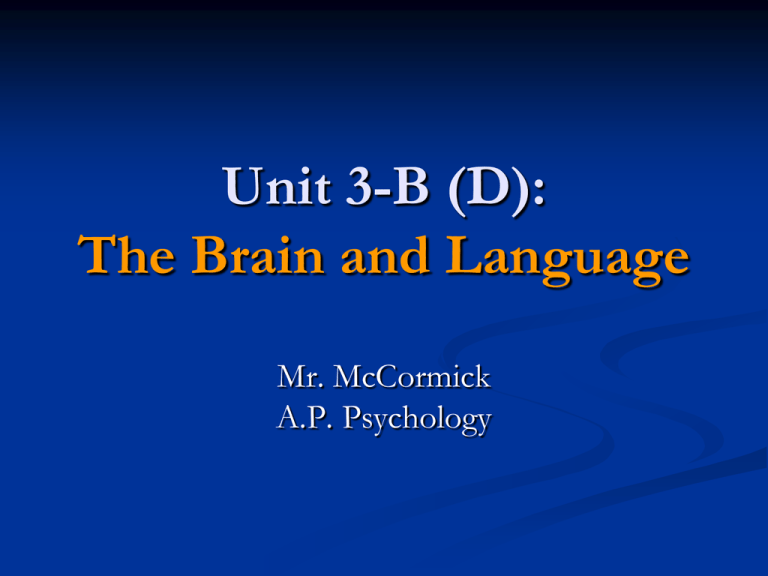
Unit 3-B (D): The Brain and Language Mr. McCormick A.P. Psychology Do-Now (Discussion) Why are psychologists interested in studying language? What enables humans to speak/understand language, while other animals are unable to do so? What cognitive processes must occur in order to speak and understand language? The Brain and Language Several cognitive processes occur when speaking and understanding language: Reading words Interpreting written words as sounds Interpreting sounds as meanings Speaking words Pronouncing words The Brain and Language: Expression and Reception Broca’s Area: Controls language expression Directs muscle movements involved in speech Left frontal lobe Wernicke’s Area: Controls language reception/comprehension Left temporal lobe Brain Areas Involved in Language Processing Brain Areas Involved in Language Processing By reading the words on this screen, what areas of the brain are you using? Brain Activity When Hearing/Speaking/Seeing Words The Brain and Language: Language Impairment Aphasia: Impairment of language Damage to left hemisphere: Broca’s Area (Impairing speaking) Wernicke’s Area (Impairing understanding) The Brain and Language: Language Impairment How does this psychological cartoon illustrate Aphasia? Review What functions of language are associated with the following parts of the brain: Broca’s Area Wernicke’s Area What is Aphasia? What are its causes? What are its symptoms? Homework Research Study Response #1: “One Brain or Two?” (Pgs. 1-11) Unit 3-B Quiz: “The Brain” Chapter 4 Outline: “Nature, Nurture, and Human Diversity” Unit 3 Project: “3-D Brain Model”
